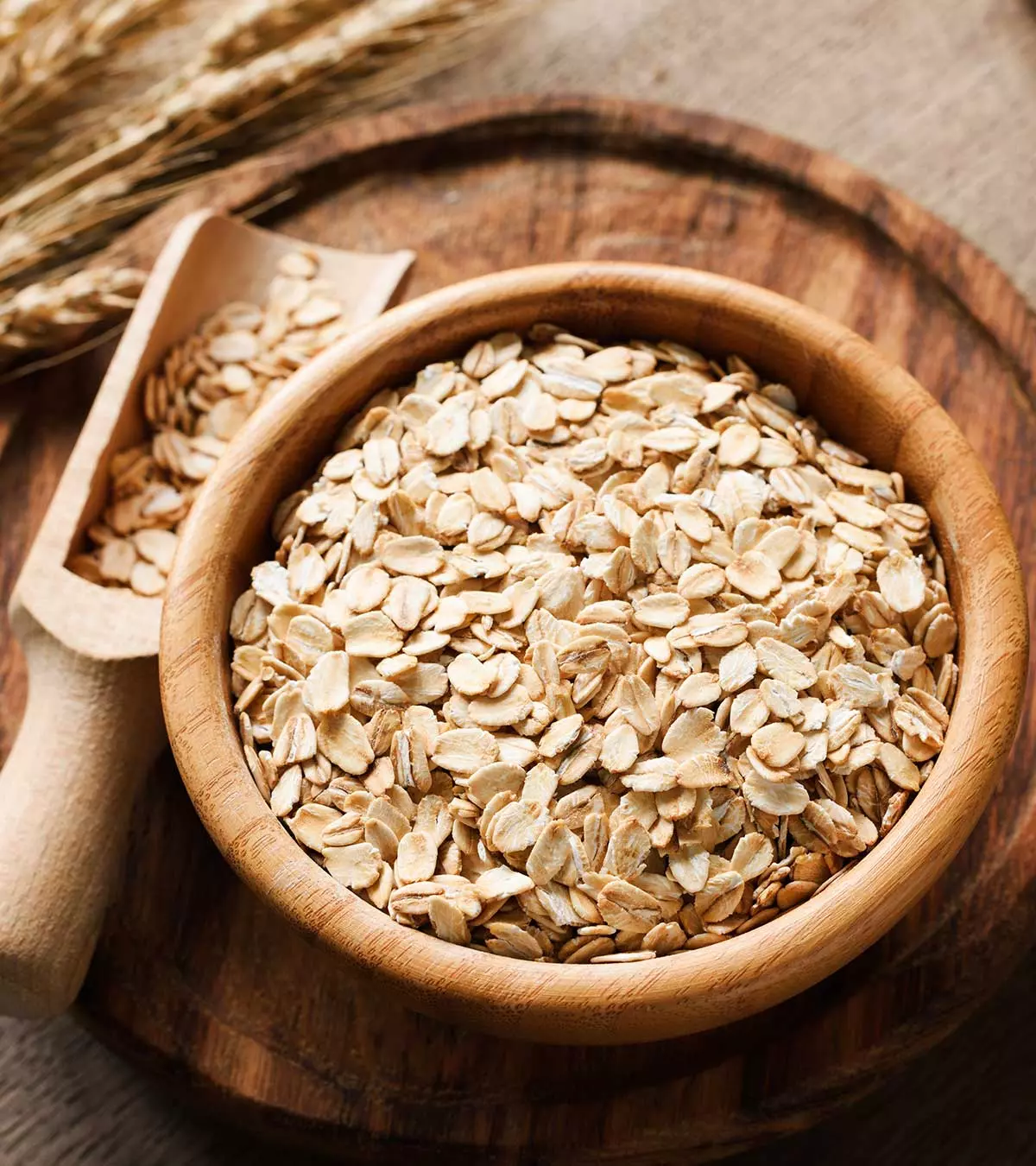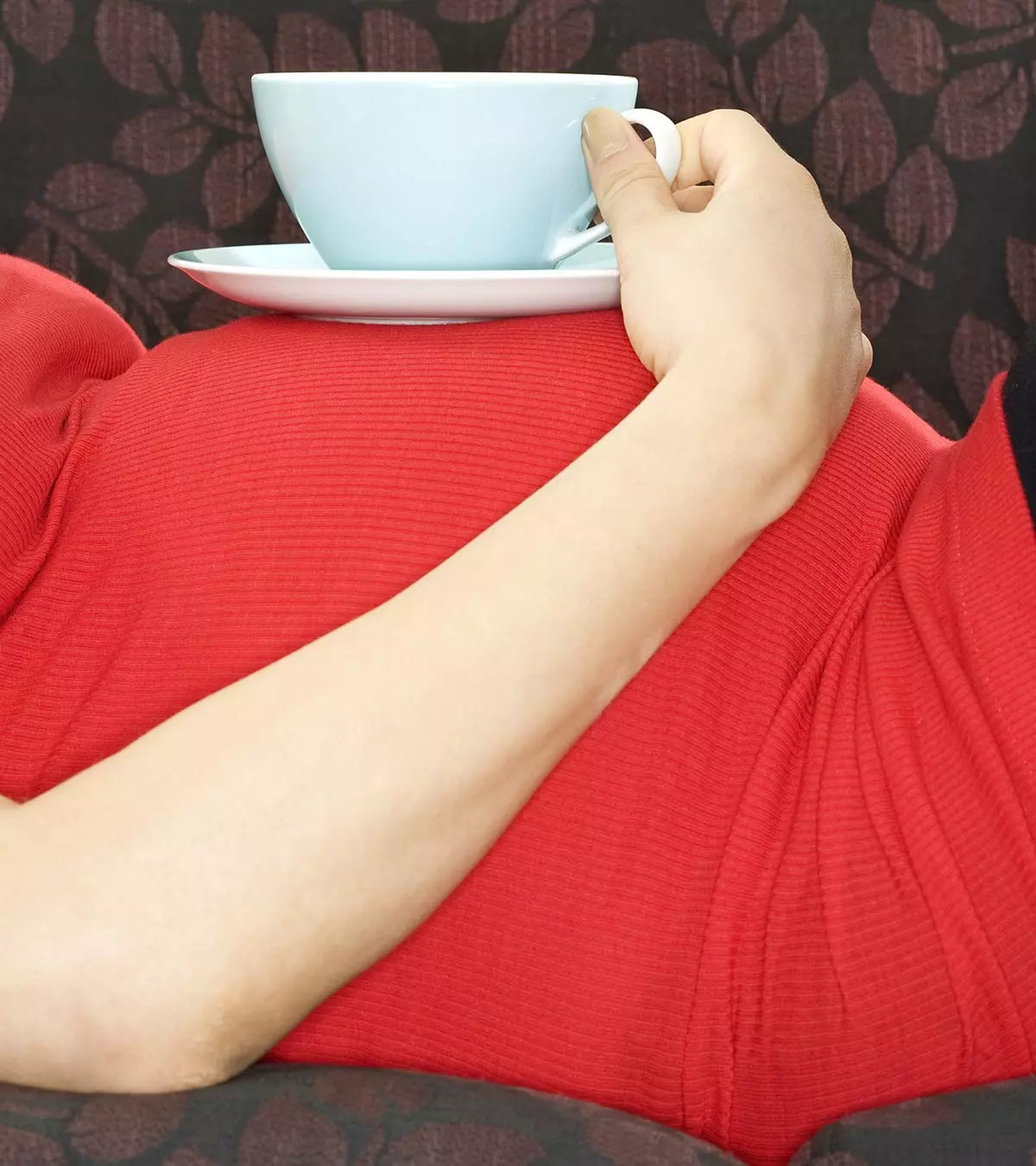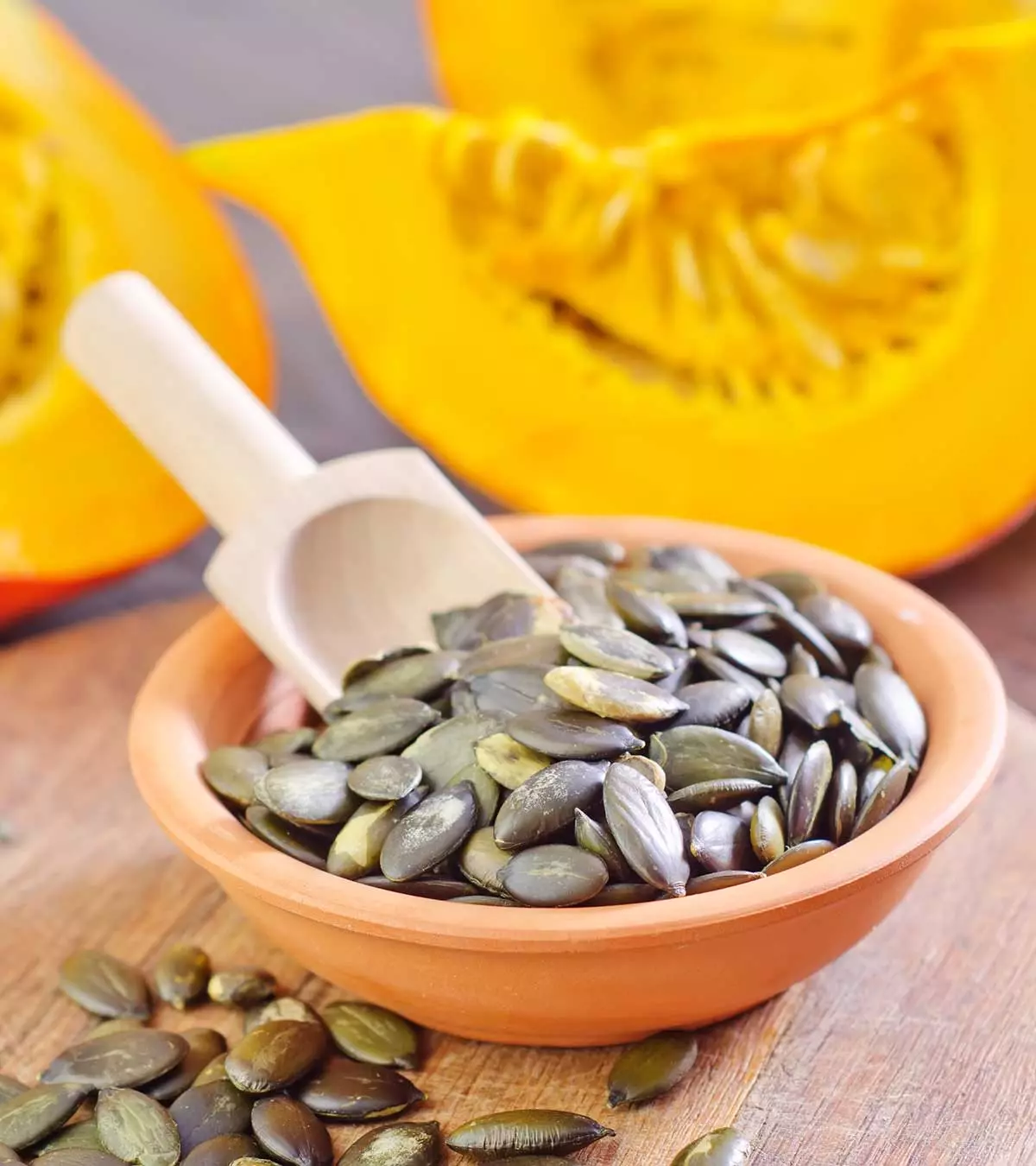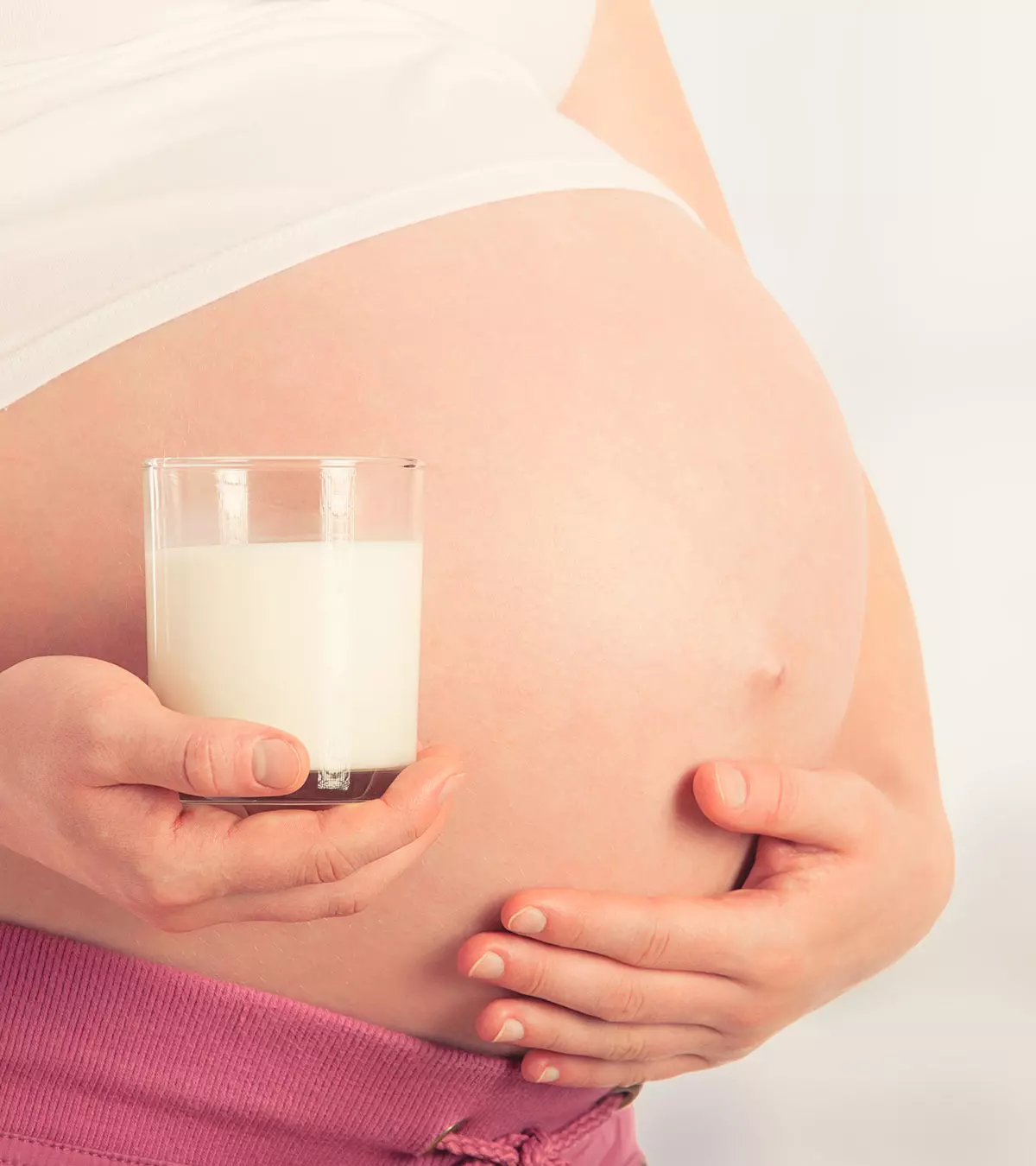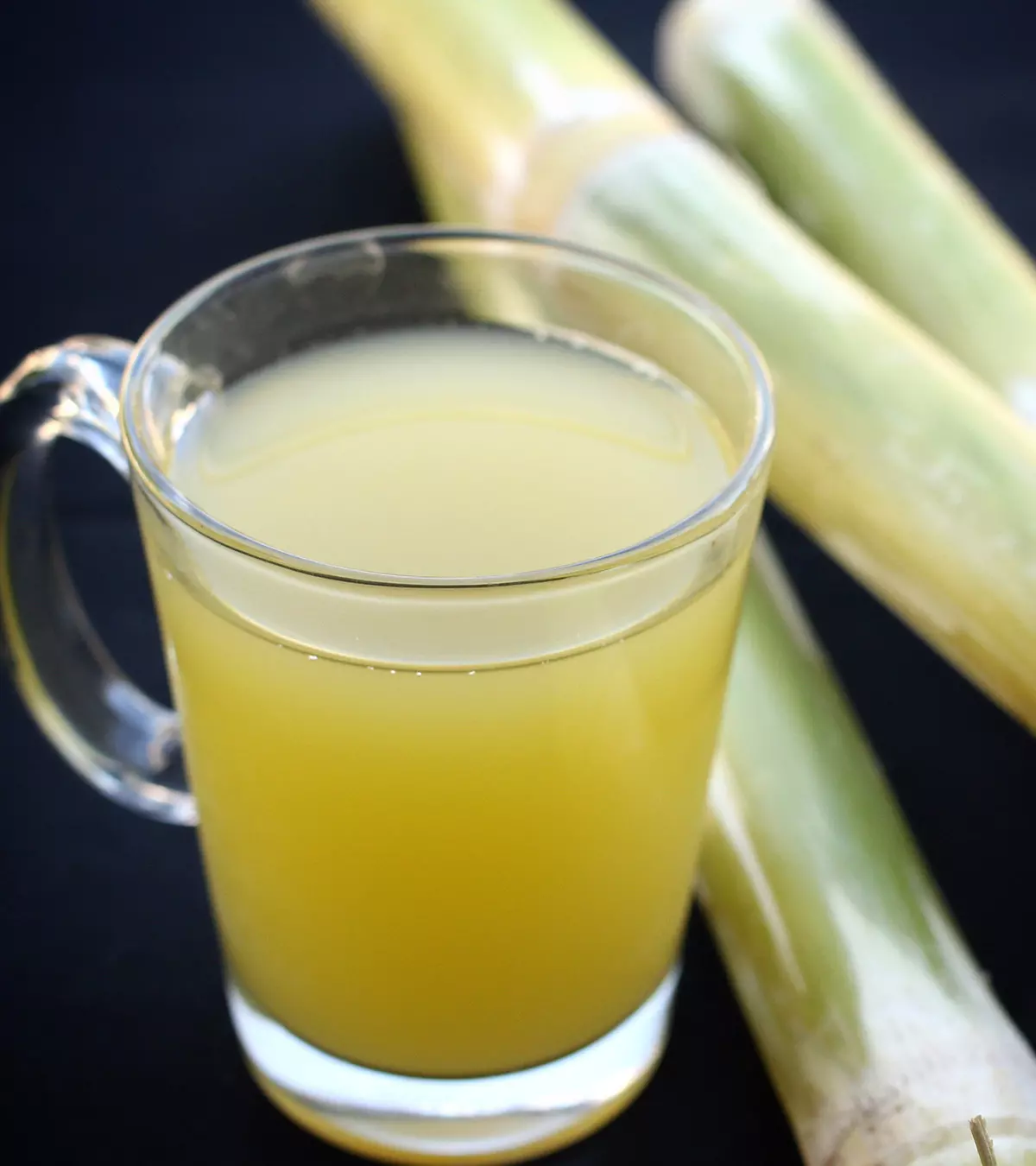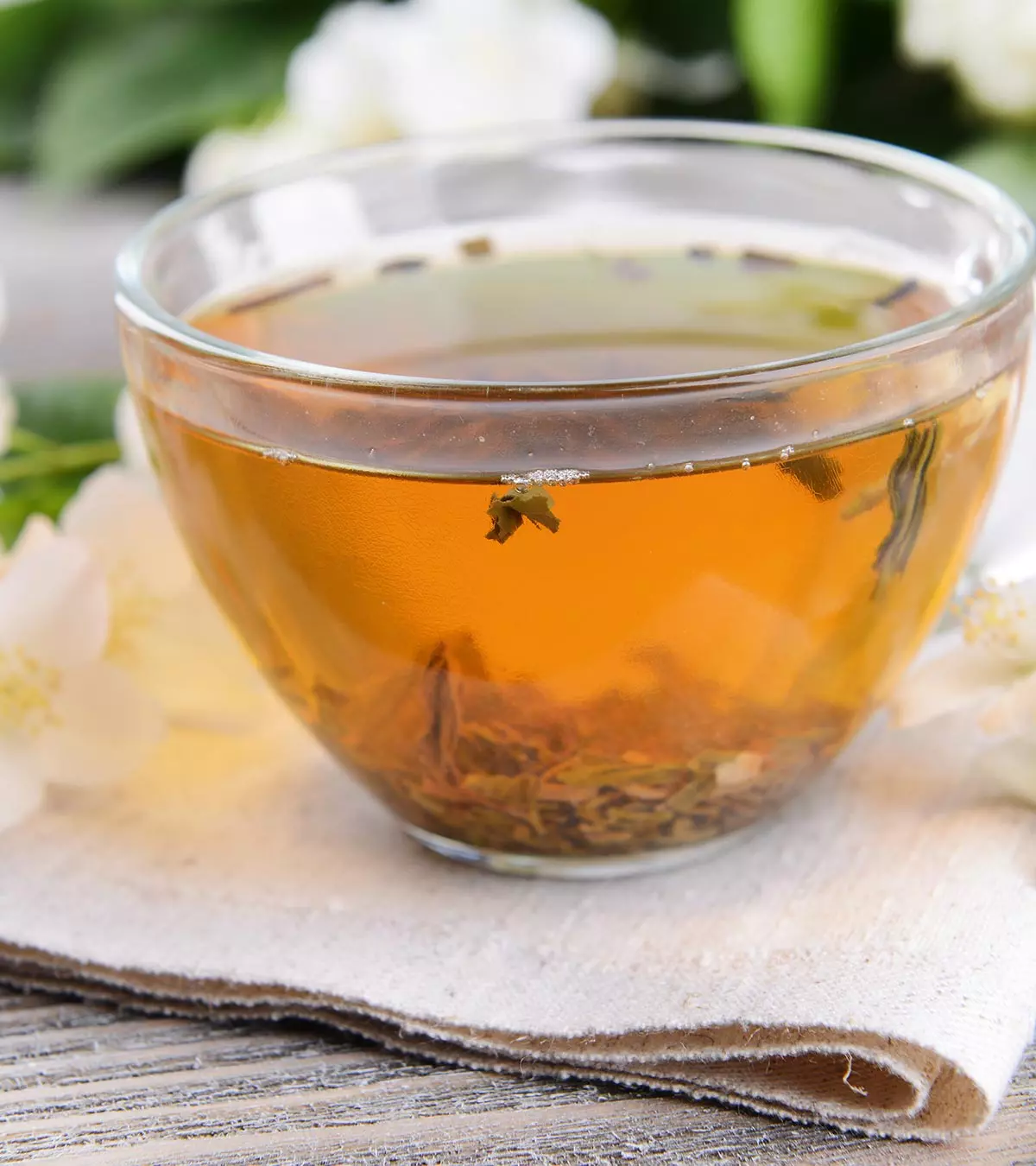
Jasmine tea is a well-known beverage because of its pleasing aroma. You may usually love to indulge in Jasmine and other scented tea flavors but may wonder if it is safe to drink Jasmine tea during pregnancy.
Herbal teas are caffeine-free teas. Jasmine tea is not a herbal tea as the base of it is green or black tea and hence contains caffeine. Therefore, if you wish to try Jasmine tea when pregnant, consume it in moderation or opt for the decaf versions.
Continue reading this post to learn more about whether jasmine tea is safe for consumption during pregnancy, jasmine tea benefits, and its potential side effects.
Key Pointers
- Jasmine flowers and green tea leaves are used to make the popular beverage, jasmine tea.
- The only real benefit of drinking jasmine tea is the antioxidant content of the green tea.
- To avoid consuming too much caffeine, it is recommended to limit jasmine tea consumption to two cups per day.
- High caffeine levels during pregnancy can have negative health effects, such as increased risk of miscarriage, low birth weight, and premature birth.
What Is Jasmine Tea?
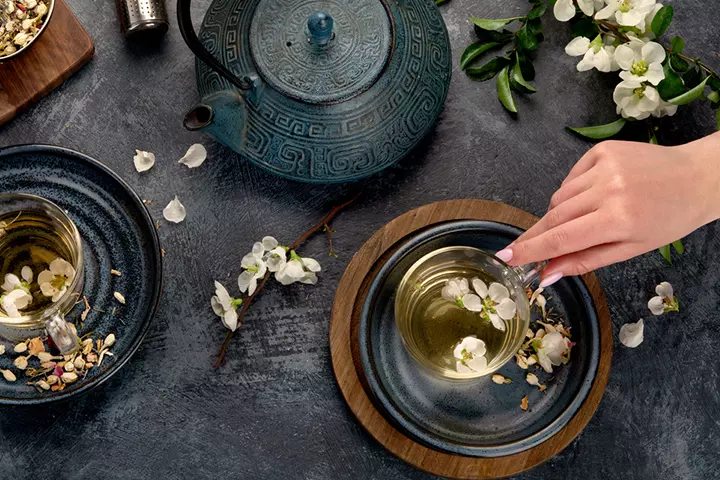
Image: Shutterstock
Jasmine tea leaves are extremely aromatic; hence most green tea manufacturers today place above regular green tea leaves to add the jasmine fragrance. In some cases, the fragrant jasmine blossoms are also added to black tea for a hint of jasmine tea. Jasmine tea is the most famous form of scented tea and is widely used in China.
It is true that drinking jasmine tea may make you feel light and can also help quell any feelings of bloated stomach, which is a common sign during pregnancy. However, it is important to check with your doctor before you consume jasmine tea when pregnant.
Benefits Of Drinking Jasmine Tea During Pregnancy

Image: Shutterstock
The tea that is sold as jasmine tea does not use any real parts of the jasmine flower. Instead, it only contains an essence that is reminiscent of the scent of the jasmine flower. It means that drinking jasmine tea will not have any health, nutritional or medical benefits, whether or not you are pregnant. Instead, since the essence is mixed with green tea, you may derive some health benefits from the same. Green tea has various antioxidants and other health-related benefits that may work for you, even as you mistakenly attribute the goodness to jasmine tea.
Unlike what most people are led to believe, drinking jasmine tea does not have any real benefits.
 Research finds
Research findsIs Jasmine Tea Safe During Pregnancy?

Image: Shutterstock
Jasmine tea, much like any other green tea or black tea, does contain some amount of caffeine. Certain pregnancy dietary restrictions need to be followed to ensure the health and safety of both the mother and the developing fetus and avoid pregnancy discomfort. Fetal development is influenced by the mother’s pregnancy diet. Consuming caffeine while you are pregnant is not strictly forbidden, but it is important that you take care of how much caffeine you have on a daily basis. To be on the safer side, limit your caffeine intake to no more than two cups a day. It means that, even if you think that drinking jasmine tea makes you feel light and fresh, avoid having more than two cups for pregnancy wellness.
Also, every pregnancy is unique, and your body may have different medical needs or health issues than someone else. Speak to your doctor about whether or not you can safely drink jasmine tea while pregnant. If your doctor does give you the go-ahead, make sure you also ask how much jasmine tea you can safely have on a regular basis. If you wish to consume normal tea, you can also check with them if you can take decaf tea during pregnancy.
 Caution
CautionHarmful Effects Of Caffeine While You Are Pregnant

Image: Shutterstock
Here are some harmful effects of caffeine that can also affect the unborn baby:
- Miscarriage. A meta-analysis conducted by multiple institutions has revealed that a safe daily dose of caffeine during pregnancy is 200 mg (equivalent to two cups of coffee). Researchers discovered that an increase of a cup of coffee per day during pregnancy was associated with 3% increased risk of pregnancy loss.
- Stillbirth
- Sleep or breathing difficulties in the newborn at the time of birth and till some time afterward
- Decline in the newborn’s birth weight
- Increase in the heart rate of the newborn
- Cognitive impairment. Research indicates that excessive caffeine intake during pregnancy can lead to fetal growth restrictions and problems with cognitive development (4).
Frequently Asked Questions
1. What can I use to replace jasmine tea during pregnancy?
If you wish to eliminate jasmine tea, you may drink water infused with fruit like lemons, lime, or cherries. You may also try red raspberry leaf tea. It is a herbal tea that helps reduce nausea and is considered one of the most beneficial herbal teas during pregnancy (1). Green tea is another good option you may explore. Consuming green tea in pregnancy is not known to cause any harm. Remember, not everything labeled as herbal is safe. Hence, it is vital to ensure the safety of herbal tea during pregnancy.
2. What is the caffeine content in jasmine tea?
Depending on how it is brewed, every tea’s caffeine concentration may vary (2). The exact concentration of caffeine in jasmine tea depends on the base it is mixed in.
3. Can Jasmine tea cause acid reflux during pregnancy?
Anecdotal evidence suggests the caffeine content in jasmine tea could cause acid reflux during pregnancy.
4. Can Jasmine tea affect the sleep pattern during pregnancy?
Anecdotal evidence suggests that jasmine tea has a sedative odor that helps promote sleep when consumed in moderation (3).
You can consume any caffeinated beverage during pregnancy, as long as you take in safe amounts. Jasmine tea during pregnancy can offer health benefits due to the antioxidant property of its green tea base. However, given its caffeine content, you should consult your doctor before consuming jasmine tea to avoid the negative impacts of caffeine, such as miscarriage and low birth weight. Your OB/GYN can help you with the right and safe amount of jasmine tea to soak in its benefits and also guide you on safe beverages.
Infographic: Advantages Of Consuming Jasmine Tea In Pregnancy
Pregnancy involves a lot of cravings, one of which is for caffeine. A simple Japanese blend of green tea with infused jasmine may be able to help you. Here are a few benefits of jasmine tea during pregnancy. However, it is essential to consult the doctor before your intake.

Illustration: Momjunction Design Team
Do you wonder which herbal teas are safe for your unborn baby? Watch this video to find out more about safe and unsafe herbal teas during pregnancy.
Illustration: Is It Safe To Drink Jasmine Tea During Pregnancy?

Image: Stable Diffusion/MomJunction Design Team
References
- Herbal Tea and Pregnancy
https://americanpregnancy.org/healthy-pregnancy/is-it-safe/herbal-tea/ - Food And Fitness
http://www.wvseniorservices.gov/LinkClick.aspx?fileticket=3ZqvQiToMIg%3D&tabid=106 - Kyoko Kuroda et al; (2005); Sedative effects of the jasmine tea odor and (R)-(-)-linalool, one of its major odor components, on autonomic nerve activity and mood states
https://pubmed.ncbi.nlm.nih.gov/15976995/ - Jingjing Qian et al; Impacts of Caffeine during Pregnancy
https://pmc.ncbi.nlm.nih.gov/articles/PMC7035149/#:~:text=(A)%20In%20humans%2C%20caffeine,the%20use%20of%20animal%20models
Community Experiences
Join the conversation and become a part of our nurturing community! Share your stories, experiences, and insights to connect with fellow parents.
Read full bio of Jyoti Benjamin
Read full bio of Ria Saha
Read full bio of Swati Patwal
Read full bio of Lorraine Teron













